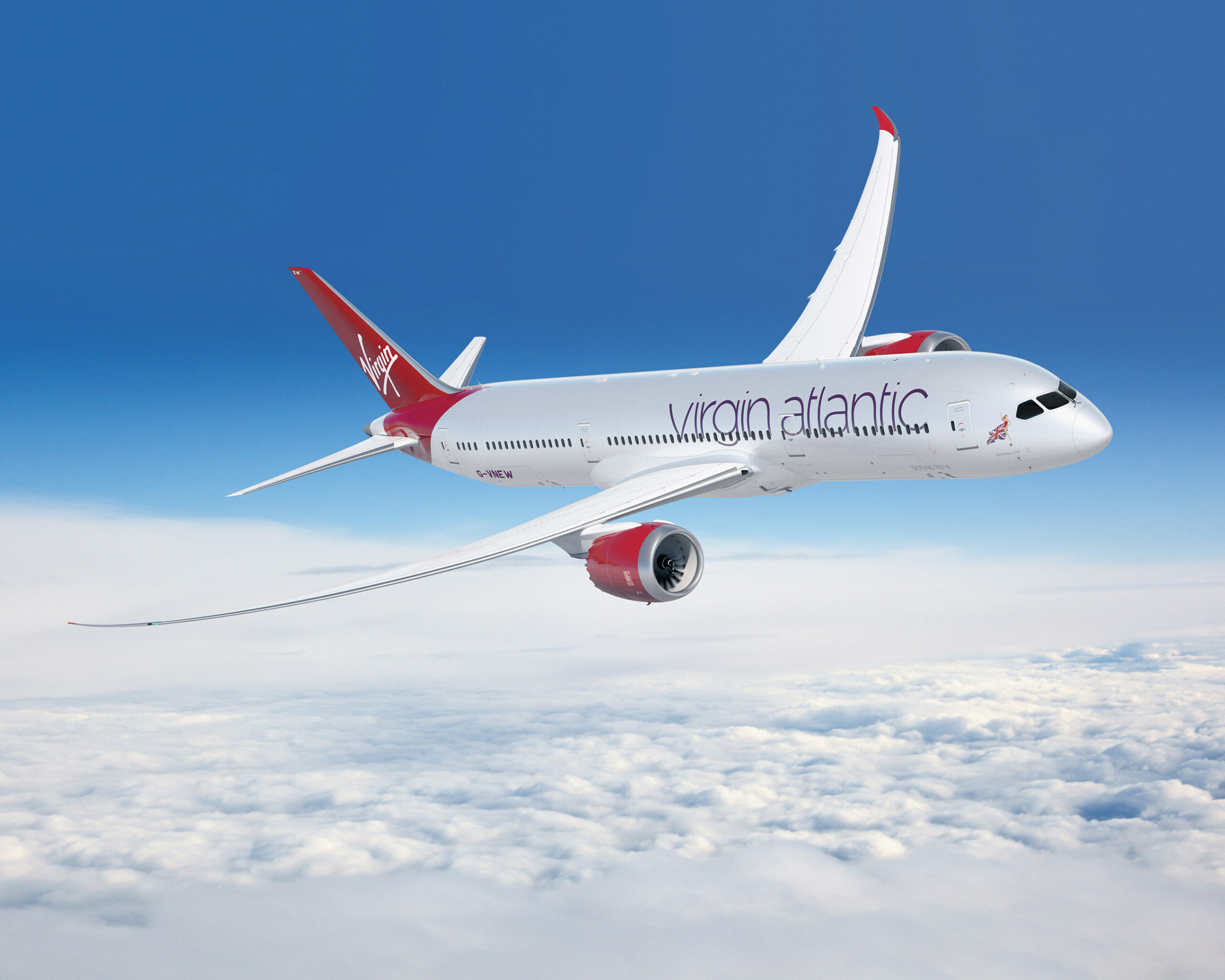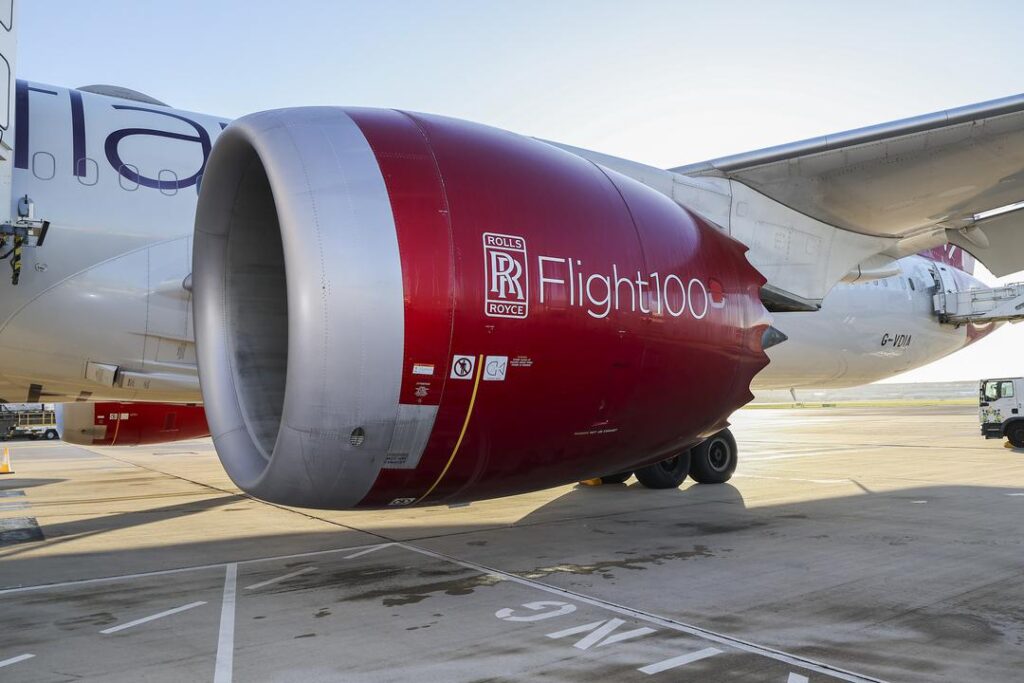
Virgin Atlantic Achieves Historic Milestone with World’s First 100% Sustainable Aviation Fuel Flight from London Heathrow to New York JFK

By Brian K Neal
Virgin Atlantic celebrated a historic milestone on November 28th as its flight powered by 100% Sustainable Aviation Fuel (SAF) took off from London Heathrow to New York JFK. This achievement marked the culmination of a year-long collaboration aimed at demonstrating SAF’s capability as a safe and effective replacement for traditional fossil-derived jet fuel. The flight showcased SAF’s compatibility with current engines, airframes, and fuel infrastructure.
SAF plays a crucial role in the decarbonization of long-haul aviation and is seen as a key pathway to achieving Net Zero 2050 goals. Derived from waste products, SAF offers up to a 70% reduction in CO2 lifecycle emissions while performing comparably to traditional jet fuel. Unlike technologies such as electric and hydrogen, SAF is available for immediate use, representing less than 0.1% of global jet fuel volumes today, with current fuel standards allowing only a 50% SAF blend in commercial jet engines.
The Flight100 initiative not only aimed to demonstrate SAF’s capabilities but also assessed its impact on non-carbon emissions. Virgin Atlantic collaborated with consortium partners, including ICF, Rocky Mountain Institute (RMI), Imperial College London, and the University of Sheffield, to enhance scientific understanding of SAF’s effects on contrails and particulates. The findings will contribute to implementing contrail forecasts in flight planning processes, with data and research shared across the industry.
The SAF used in Flight100 was a unique dual blend consisting of 88% Hydroprocessed Esters and Fatty Acids (HEFA) supplied by AirBP and 12% Synthetic Aromatic Kerosene (SAK) supplied by Virent, a Marathon Petroleum Corporation subsidiary. HEFA is made from waste fats, while SAK is derived from plant sugars, ensuring sustainability with the remainder of plant proteins, oil, and fibers continuing into the food chain.
To achieve Net Zero 2050, innovation and investment across all available feedstocks and technologies are crucial to maximizing SAF volumes. Virgin Atlantic emphasized the need for a thriving UK SAF industry and urged industry and government collaboration to meet the aviation sector’s 10% SAF by 2030 target. The potential social and economic benefits, estimated at £1.8 billion in Gross Value Added to the UK and over 10,000 jobs, highlight the significance of such initiatives.
Acknowledging the SAF Grand Challenge set by President Biden in 2021, Virgin Atlantic expressed commitment to adopting 3 billion gallons of SAF by 2030. The importance of regulatory support, price mechanisms, and government backing for increased investment were emphasized to accelerate SAF production at scale.
Shai Weiss, Chief Executive Officer of Virgin Atlantic, highlighted Flight100 as proof that SAF is a viable solution for decarbonizing long-haul aviation, while Sir Richard Branson emphasized the spirit of innovation in achieving better outcomes for all.
Virgin Atlantic, with its track record of leading SAF development at scale for 15 years, continues its commitment to finding more sustainable ways to fly. The airline operates one of the youngest and most fuel-efficient fleets globally, further emphasizing its dedication to the journey to Net Zero 2050.
UK Transport Secretary Mark Harper praised the historic flight, showcasing the dual achievement of decarbonizing transport and enabling passengers to maintain their travel preferences. The UK government expressed ongoing support for the emerging SAF industry, recognizing its potential to create jobs, boost the economy, and contribute to achieving Jet Zero.
Dame Karen Pierce, His Majesty’s Ambassador to the United States, emphasized the significance of this milestone in the UK’s journey towards Jet Zero aviation emissions. Collaboration with the US was highlighted to increase the use of sustainable fuel for future flights.
Rick Cotton, Executive Director of the Port Authority of New York and New Jersey, commended Virgin Atlantic’s efforts in reducing the carbon footprint, aligning with the agency’s goal of reaching net-zero emissions by 2050.
Boeing and Rolls-Royce, key partners in the aviation industry, lauded the achievement. Sheila Remes, Vice President of Environmental Sustainability at Boeing, highlighted the significance of this milestone in moving towards 100% SAF-compatible airplanes by 2030. Simon Burr, Group Director of Engineering, Technology & Safety at Rolls-Royce, expressed pride in the Trent 1000 engines powering the first-ever widebody flight using 100% SAF across the Atlantic, marking a major milestone for the entire aviation industry’s journey towards net-zero carbon emissions.







